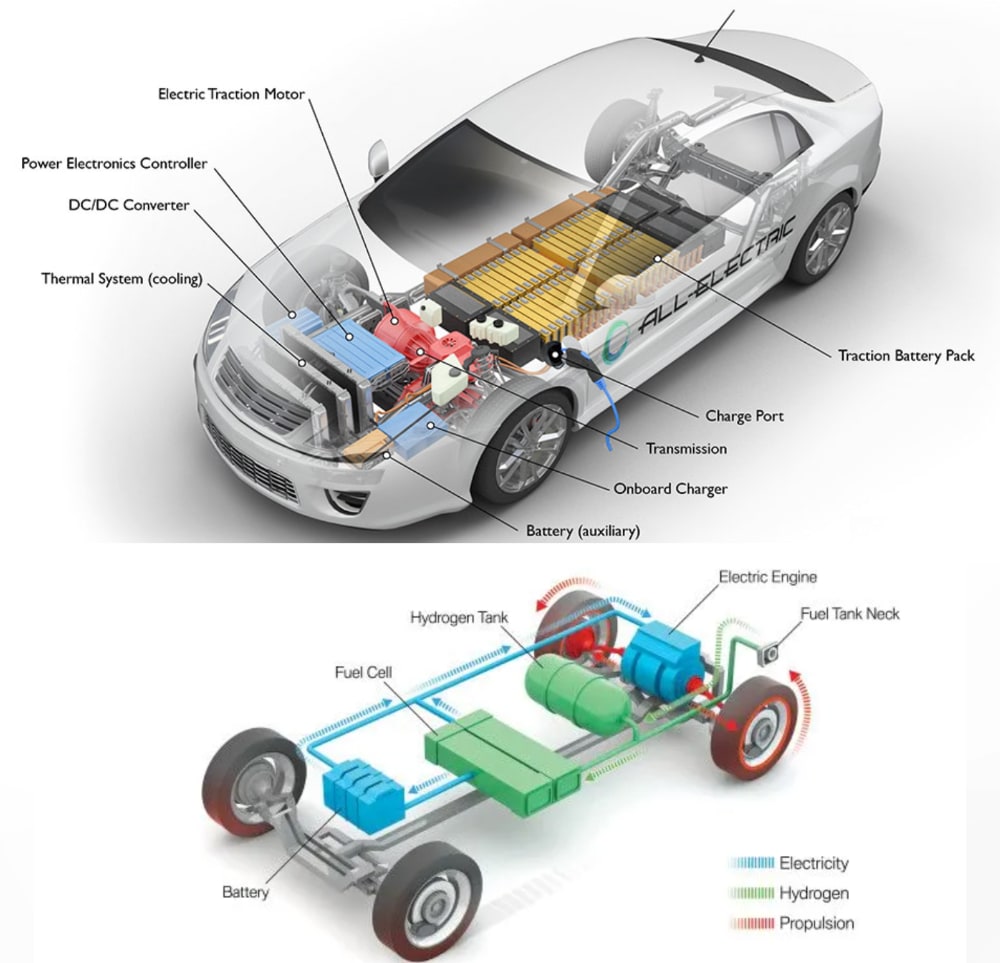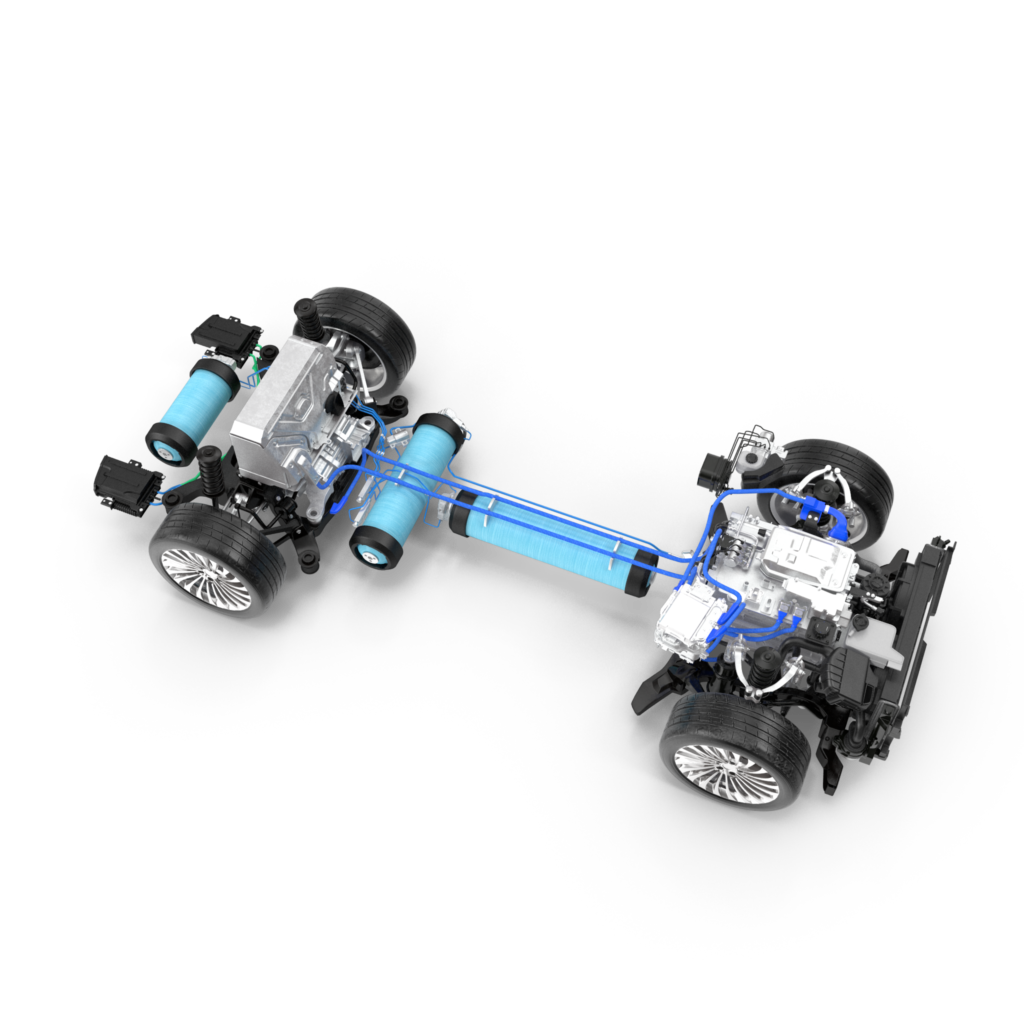
As the world shifts towards sustainable transportation, two groundbreaking technologies have emerged as potential game-changers in the automotive industry: hydrogen-powered cars and electric-powered cars. Both aim to reduce greenhouse gas emissions and combat climate change while offering efficient and eco-friendly mobility solutions. In this article, we’ll delve into the realm of hydrogen vs. electric cars, exploring the benefits, challenges, and prospects of each technology as we embark on a greener drive for the future.
The Green Credentials of Hydrogen-Powered Cars
1. How Hydrogen Cars Work
Hydrogen-powered cars, also known as fuel cell vehicles (FCVs), rely on a fuel cell stack that generates electricity through a chemical reaction between hydrogen and oxygen. The electricity produced powers an electric motor, propelling the vehicle forward. The only byproduct of this process is water vapor, making hydrogen cars emission-free at the point of use.
2. Abundant Energy Source
Hydrogen is the most abundant element in the universe, and it can be produced using various methods, including electrolysis of water, natural gas reforming, and biomass gasification. This accessibility presents the possibility of creating a sustainable and renewable hydrogen supply chain.
3. Fast Refueling and Long Range
One of the significant advantages of hydrogen cars is their quick refueling time, comparable to conventional gasoline vehicles. Unlike electric cars that require lengthy charging times, refueling a hydrogen car takes only a few minutes. Additionally, hydrogen cars offer an extended driving range, making them suitable for long-distance travel.
4. Challenges in Hydrogen Infrastructure
Despite the potential of hydrogen-powered cars, one of the major hurdles lies in the limited infrastructure for hydrogen refueling stations. Establishing a widespread network of hydrogen stations requires significant investment and collaboration between governments, private companies, and automakers. Overcoming this challenge will be crucial in promoting the widespread adoption of hydrogen cars.
The Dominance of Electric-Powered Cars
1. The Rise of Electric Vehicles (EVs)
Electric-powered cars, or electric vehicles (EVs), have experienced a surge in popularity due to their zero tailpipe emissions and the widespread adoption of renewable energy sources. EVs rely on rechargeable batteries that store electrical energy to power an electric motor, providing a smooth and quiet driving experience.
2.Expanding Charging Infrastructure. The Rise of Electric Vehicles (EVs)
Governments, private enterprises, and automakers are investing heavily in developing charging infrastructure for EVs. With home charging options and a growing network of public charging stations, electric cars have become more convenient for daily use, addressing the range anxiety concerns of early adopters.
3. Integration with Renewable Energy
Electric vehicles synergize well with renewable energy sources like solar and wind power. By charging EVs using clean energy, their carbon footprint is further reduced, contributing to a greener and more sustainable transportation ecosystem.
4. Battery Technology Advancements
The rapid progress in battery technology has been a driving force behind the increasing popularity of electric cars. Advances in battery chemistry have resulted in improved energy density, longer ranges, and faster charging times. Additionally, research is ongoing to develop recyclable and sustainable battery materials, further enhancing the eco-friendliness of EVs.
Hydrogen vs. Electric Cars: The Key Considerations
1. Infrastructure and Availability
One of the primary challenges for hydrogen cars is the limited infrastructure for hydrogen refueling stations. While efforts are underway to expand the network, it remains sparse compared to the vast charging infrastructure for electric cars. On the other hand, EVs enjoy a significant advantage in terms of accessibility and availability of charging points.
2. Energy Efficiency
When comparing hydrogen and electric cars’ energy efficiency, EVs generally come out on top. The production, transportation, and conversion of hydrogen to electricity in fuel cells result in energy losses, making electric cars more efficient overall.
3. Environmental Impact
Both hydrogen and electric cars are considered environmentally friendly compared to traditional internal combustion engine vehicles. However, the true environmental impact of hydrogen cars depends on how the hydrogen is produced. If generated using renewable energy sources, such as wind or solar, hydrogen cars can be entirely emissions-free. Similarly, electric cars powered by clean energy have the potential for zero emissions.
The Future Outlook
1. Hydrogen’s Potential in Specific Applications
While electric cars dominate the passenger vehicle market, hydrogen-powered vehicles show great promise in specific applications. Hydrogen fuel cells have the advantage of fast refueling and long range, making them suitable for heavy-duty transportation, commercial fleets, and even trains.
2. EVs as the Current Mainstream Choice Electric cars, with their growing popularity and advancing technology, currently lead the way in the global automotive market. The maturing EV market has led to improved battery technologies, longer ranges, and affordable options, making electric vehicles more accessible to a broader range of consumers.

As the world embraces the urgency of transitioning to sustainable transportation, hydrogen-powered cars and electric-powered cars present viable solutions to reduce carbon emissions and combat climate change. Hydrogen cars hold great potential for specific applications, especially in heavy transportation. On the other hand, electric vehicles continue to dominate the mainstream automotive market, supported by a growing charging infrastructure and integration with renewable energy sources. Ultimately, the success of hydrogen vs. electric cars will depend on continuous innovation, supportive policies, and global cooperation in advancing the green drive toward a more sustainable and eco-friendly future.
Like this article, then you may also like this article on EMF Radiation and how to mitigate it.






